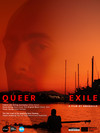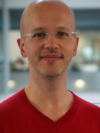PANEL | Bodies on the (Digital) Margins: The Politics of Solidarity and Resistance in the Age of “Smart Borders”
WHEN: Day One of the MCI, 8 May 2025 – 2 pm - 3:30 pm
WHERE: Haus der Kulturen der Welt
PANELLISTS: Francesca Schmidt, Ali Tutar, Ahmed Awadalla, and Nuno Ferreira
ORGANIZED AND MODERATED BY: Mohammad Dalla
Panel Description
Over the last decade, the European Union has increasingly relied on digital technologies to ‘manage’ and police migration. Various new digital tools are being tested and used in the governance of migration and asylum even before migrants and refugees reach EU borders, at the actual physical borders, and in the administrations of EU Member States. Germany has become a ‘champion’ for data-driven tools and AI projects designed for purposes such as ‘migration flow forecasting,’ mobile data evaluation, and language and dialect identification in the asylum process. Meanwhile, the electoral success of right-wing parties continues to normalize anti-immigration rhetoric and push for more border militarisation.
This panel situates the expansion of ‘smart borders’ within a broader policy landscape that is deeply entangled with colonial histories and imperial legacies. It examines how digital infrastructures perpetuate the coloniality of migration control, embedding racialized hierarchies and exclusionary practices within supposedly ‘neutral’ and ‘innovative’ technologies. Bringing together scholars, educators, artists, and activists, the discussion will explore how digital, political, legal, and physical borders shape the lived realities of forced migrants, particularly queer and racialised individuals. Panelists will interrogate how borders regulate Western constructs of gender and sexuality, while also highlighting forms of resistance emerging from (queer) refugee communities and activist networks.
The panel will open with a screening of the award-winning short documentary Queer Exile. The film follows our panellist Ahmed Awadalla, an activist who flees Egypt after the 2011 revolution and seeks refuge in Berlin. Expecting safety and freedom, they instead find themselves in a refugee camp, confronted by far-right hostility and the complexities of exile. Caught between longing for the past and the challenges of their new home, they grapple with fundamental questions of belonging, sacrifice, and the meaning of freedom.
Bios of Panellists and Speakers
Ahmed Awadalla
Ahmed Awadalla is a writer, historian, and transdisciplinary artist whose work reimagines knowledge production through queer and decolonial methodologies. Awadalla has contributed to critical conversations on colonial history, public health, sexual politics, diaspora, and exile, with writing published across media and academic platforms. Their award-winning documentary short Queer Exile has been showcased at esteemed film festivals worldwide.
Francesca Schmidt
Francesca Schmidt works from a decolonial perspective on questions of artificial intelligence, algorithms and their socio-normative implications, surveillance and control, and digital violence. She has sharpened the focus on feminist net politics at the Gunda Werner Institute for Feminism and Gender Democracy and currently works as a consultant at the Federal Agency for Civic Education for intersectional memory and transformational knowledge with a concentration on the decolonisation of the digital, feminist net politics, technoheritage, decolonial memory. Her book Netzpolitik. Eine feministische Einführung was published by Barbara Budrich Publishers in 2020. She is a founding member and board member of Netzforma* e.V. - Verein für feministische Netzpolitik.
Nuno Ferreira
Nuno joined the University of Sussex as a Professor of Law in 2016. Previously, he was a Senior Lecturer at the University of Liverpool (2012-2016) and Lecturer at the University of Manchester (2006-2012). He has also been a Visiting Professor at Wuhan University (China) and the School of Law of the University of Lisbon (Portugal), as well as a guest scholar at the University of Girona (Spain) and the Raoul Wallenberg Institute of Human Rights and Humanitarian Law (Sweden).
Nuno did his undergraduate law studies at the University of Coimbra (Portugal) and University of Bologna (Italy), and is a member of the Portuguese Bar. He worked as a legal consultant at the Legal Affairs and Litigation Department of the Portuguese Securities Market Commission (CMVM), and as a research fellow at the Centre of European Law and Politics at the University of Bremen (ZERP) (Germany). He carried out his doctoral studies at the University of Bremen, where he obtained his Dr. jur. title (summa cum laude).
Nuno has been a Horizon 2020 ERC Starting Grant recipient, leading the project SOGICA - Sexual Orientation and Gender Identity Claims of Asylum (2016-2020, www.sogica.org), and the Sussex lead in the project TRAFIG - Transnational Figurations of Displacement (2019-2022, www.trafig.eu). He is currently the principal investigator in the project NQIfFM - Negotiating Queer Identities Following Forced Migration (2022-2024, iranqueerefugee.net/), and co-editor of the Queer Judgments Project (https://www.queerjudgments.org/).





